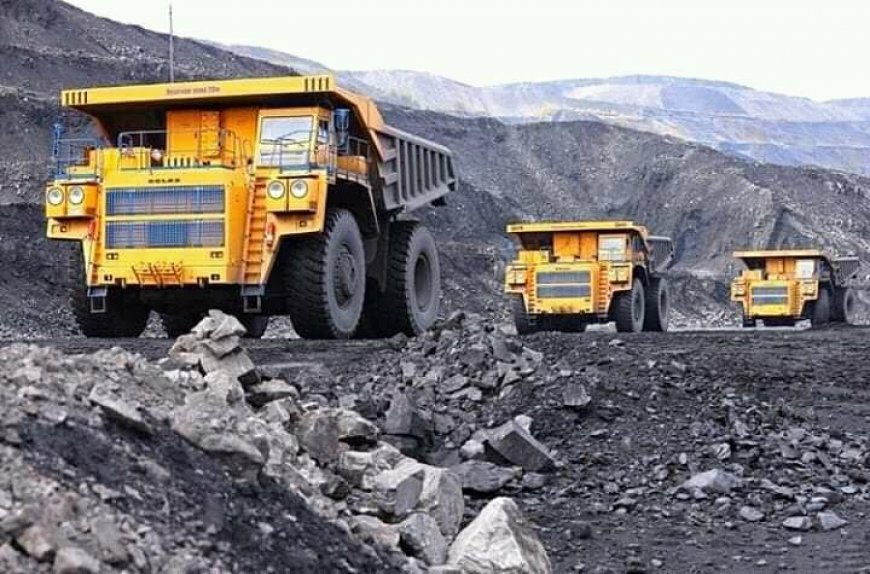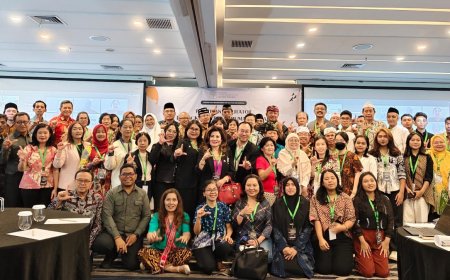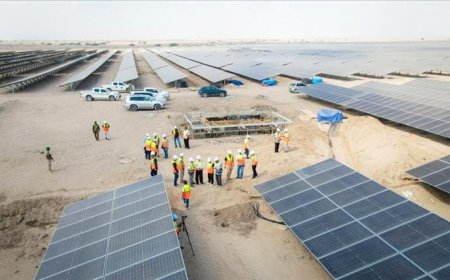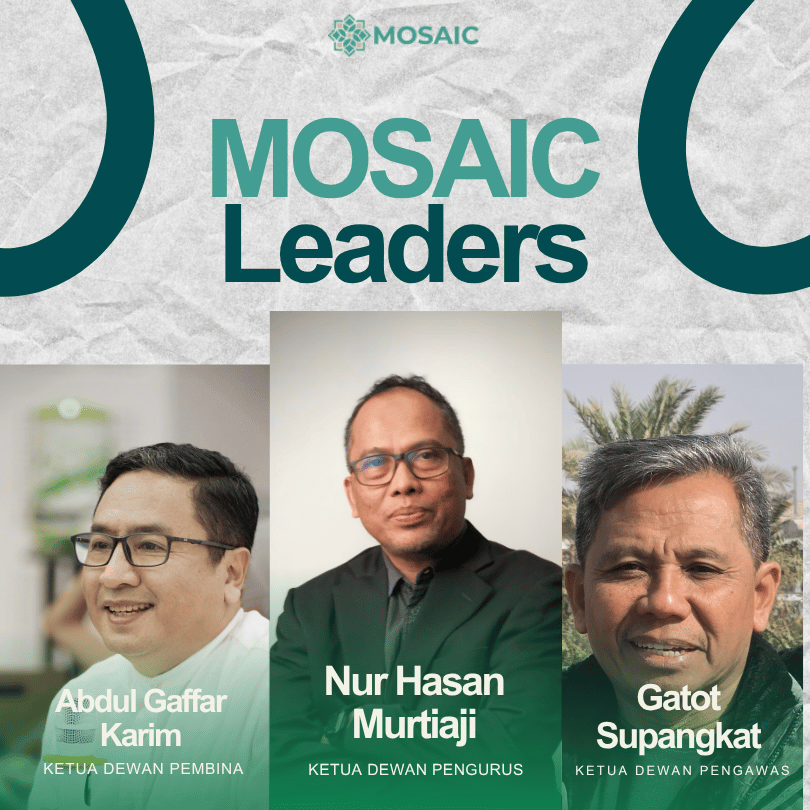Survey: Muslims aware climate change caused by mines although still need it
This survey shows that nearly 70 percent of Muslims agree climate change is caused by mines and palm oil, but they also agree ormas or boarding schools (pesantren) need mining ventures.

JAKARTA — Religious Environmentalism Actions (REACT) Survey on knowledge of Indonesian Muslim attitudes and behavior towards the environment and climate change indicate the duality of religious roles, especially when it comes to mining. The survey released by the Center for the Study of Islam and Society (PPIM) of the Islamic State University Syarif Hidayatullah Jakarta (UIN Jakarta) revealed that although the majority of Muslim respondents know and believe about climate change and the negative impact of economic activities such as mining, most Muslims still see mining as an important economic opportunity.
“These findings show a twofold attitude of the people. Although many of them agree that environmental damage is caused by economic activities such as mines, but on the other hand, Muslim communities in Indonesia tend to agree that boarding schools (pesantren) or ormas have mining businesses to improve economic well-being,”said Iim Halimatusa'diyah, Coordinator of REACT National Survey — PPIM UIN Jakarta at the Launch of REACT National Survey at Ashley Wahid Hasyim, Jakarta, Wednesday (24/7/2024).
This survey interviewed 3,397 respondents aged 15 and above from all provinces in Indonesia. The survey found that nearly 70 percent of Indonesian Muslims vote strongly agree and agree that climate change is caused by economic activities such as palm plantations and mining. However, 63.83% of Muslims also agree that pesantren/ormas have mining or palm plantations to improve economic conditions.
Judging by the affiliation of Islamic organizations, Muslims affiliated with Muhammadiyah most agree (69.91%) that climate change is occurring due to economic activities such as mining and palm plantations. Meanwhile, although in general all Muslims of various ormas affiliations agree with mining ownership, Muslims affiliated with NU least agree (29.88%) pesantren/ormas have mining ventures or palm plantations to improve economic conditions.
Iim responds to the above findings through two important questions to discuss. “First, is there any environmentally friendly mine? Secondly, can a boarding school or an ormas manage an environmentally friendly mine while making people prosperous?" ask Iim. According to Iim, this fact shows how difficult environmental issues and economic interests are in Indonesia.
Chief Administrator of Nahdlatul Ulama (PBNU) KH Ulil Abshar Abdalla revealed two interpretations of Green Islam. According to him, Indonesian Muslims need to carefully understand Green Islam as “small habitat” or small habitat (al-bi'ah al-sughra) and “big habitat” or big habitat (al-bi'ah al-kubra).
Ulil said he did not question whether Muslims were involved in al-bi'ah al-sughra environmental activism. “At this level, I don't have any objections. As the PPIM survey pointed out, Muslims should be involved in the issues of garbage, pollution, biodiversity destruction, up to the issue of environmental damage caused by extractive industries,”he said.
Meanwhile, Ulil reminded Indonesian Muslims to carefully engage in environmental issues in the al-bi'ah al-kubra category. Ulil exemplifies al-bi'ah al-kubra as a global debate of environmental issues, especially the issue of climate change, as it occurs in the northern hemisphere of America.
He said that Muslims must be critical of the discourse on environmental issues at this level if they do not want Islam on the periphery or periphery and only justification for environmental issues. According to him, environmental issues at this level often cause polarization, as is the case with countries in northern America, the United States, Canada or Australia. “That could lead to the emissions targets agreed in the Paris Agreement backtracking,” Ulil explained.
Dr. Agus Sulaiman Djamil, Executive Director of Muhammadiyah Climate Center, affirmed that people should be proactive and synergistic in glorifying the earth and acting out of religious obligations, not just because of the commitment of many parties.
Djamil highlighted the findings of the PPIM UIN Jakarta survey, nearly 70% of Indonesian Muslims strongly agree that climate change is caused by economic activities such as palm plantations and mining. According to Jamil, this condition needs attention, although many religious communities have been actively engaged in environmental issues, but environmental problems continue to occur. “Indonesia is in a very special and critical situation in this world climate issue” said Djamil, Deputy Chairman of the PP Muhammadiyah Environment Assembly. In addition to mining and palm oil, according to Djamil, another cause of environmental damage is carbon. “Regarding the causes of climate change, in addition to pollution, it is also caused by carbon”,said Djamil
Earlier, President Joko Widodo on Thursday (30/5/2024) approved Government Regulation (PP) 25/2024 on amendments to PP 96/2021 regarding the implementation of mineral and coal mining (minerba) business activities. Article 83A PP 25/2024 mentions that the new regulation allows religious community organizations (ormas) such as NU and Muhammadiyah to manage special mining permit areas (WIUPK).
The Minister of Energy and Mineral Resources (ESDM), Arifin Tasrif, revealed that the government prepared six lands ex the Coal Mining Enterprise Work Agreement (PKP2B) to be given to several religious organizations. Of Islam there are two organics: NU and Muhammadiyah. Meanwhile, for Catholics, Protestants, Hindus, Buddhists. So far, only NU is processing. Some others still show a dismissive attitude.
“This is an attempt by the government to be able to give opportunities to religious organizations that have been so far nonprofit. They are sources that support religious activities, worship, education, health, said Arifin, at the office of the Directorate General of Oil and Gas (Ditjen Migas), Jakarta, Friday (7/6/2024).







